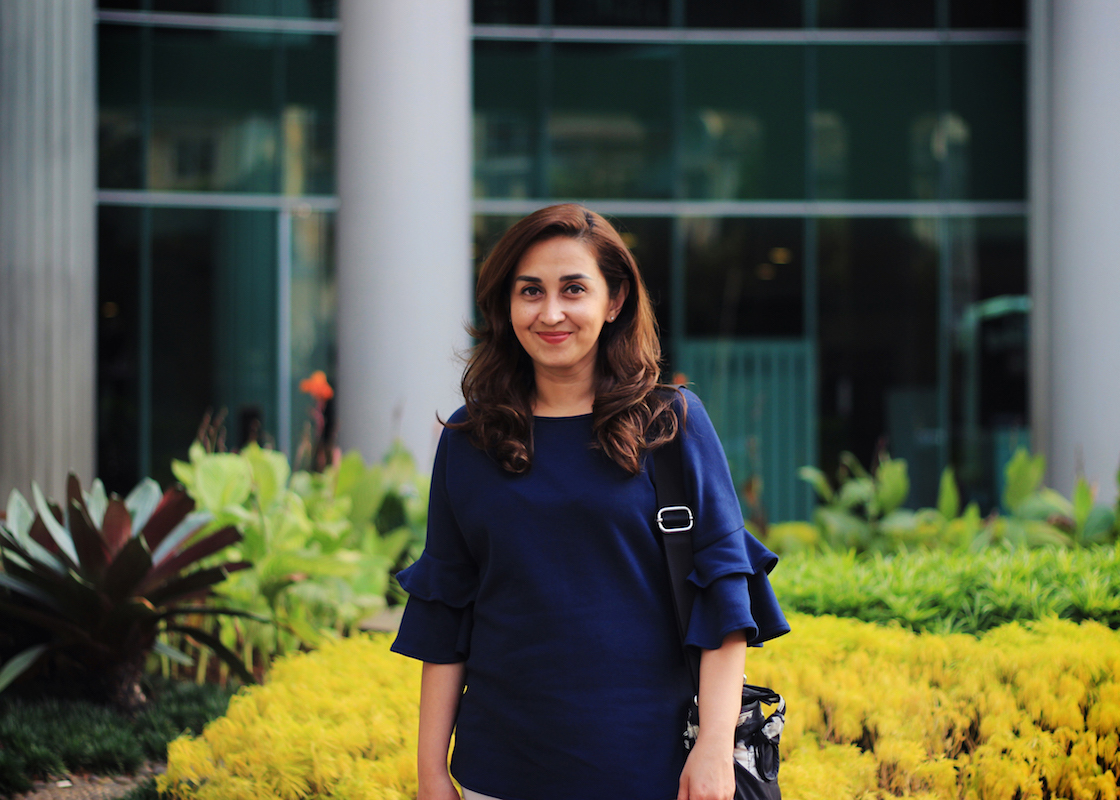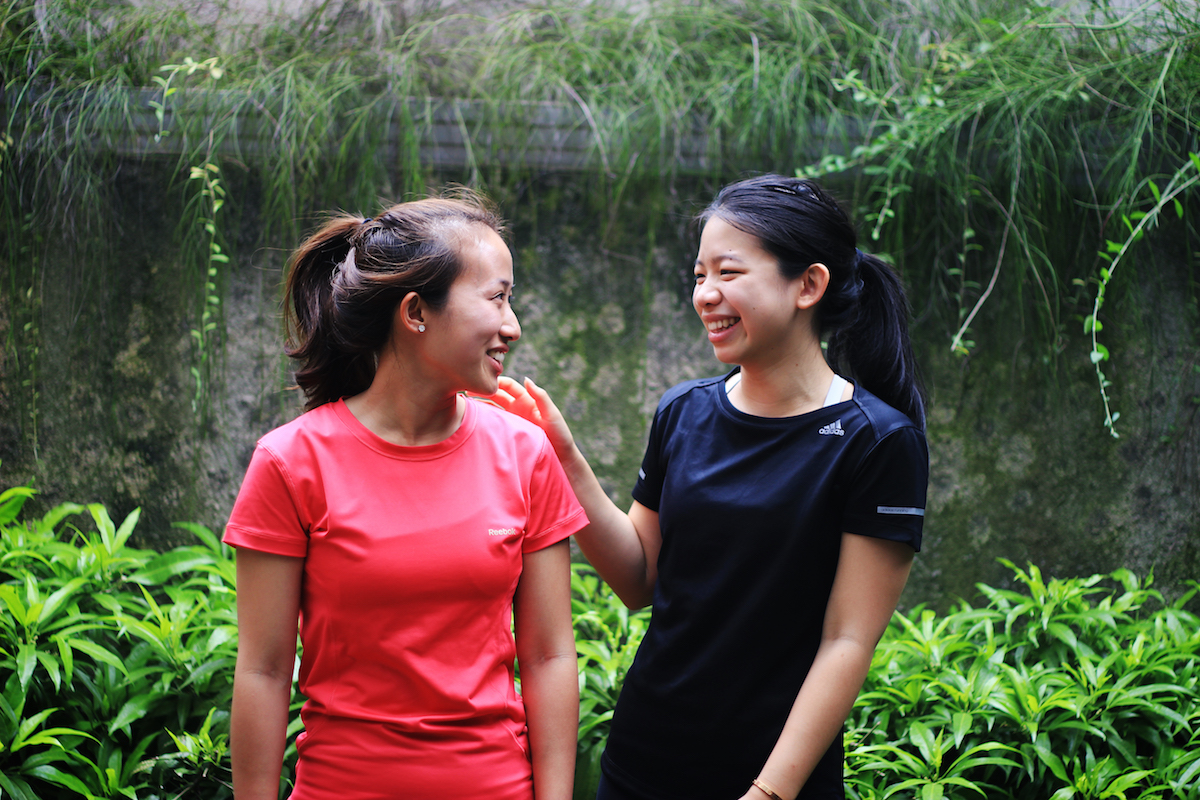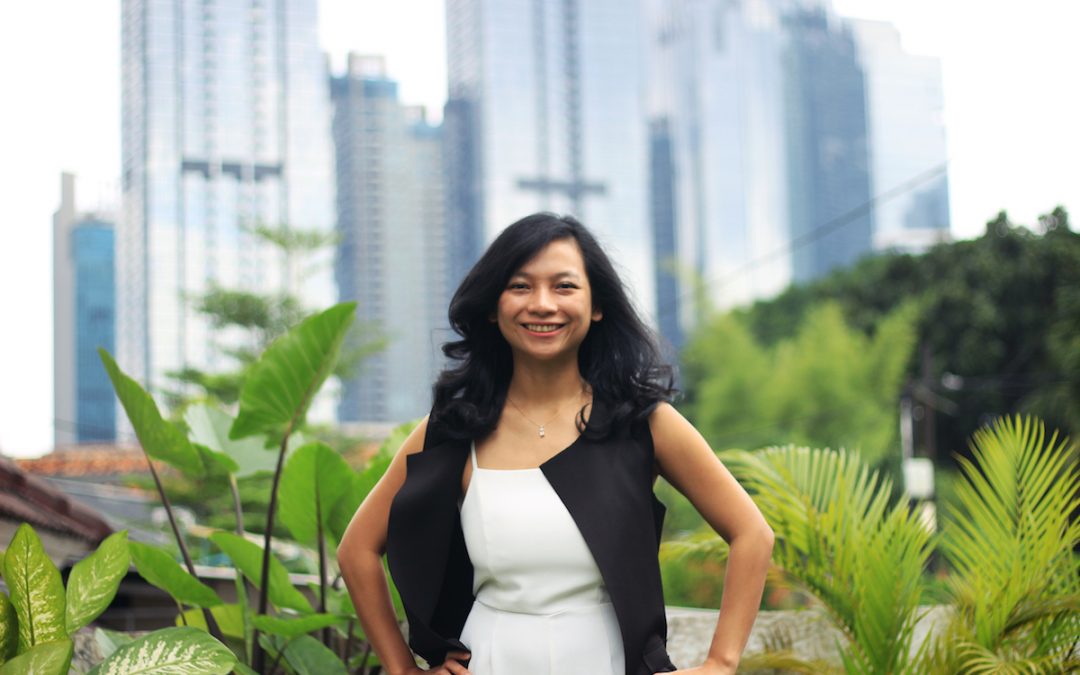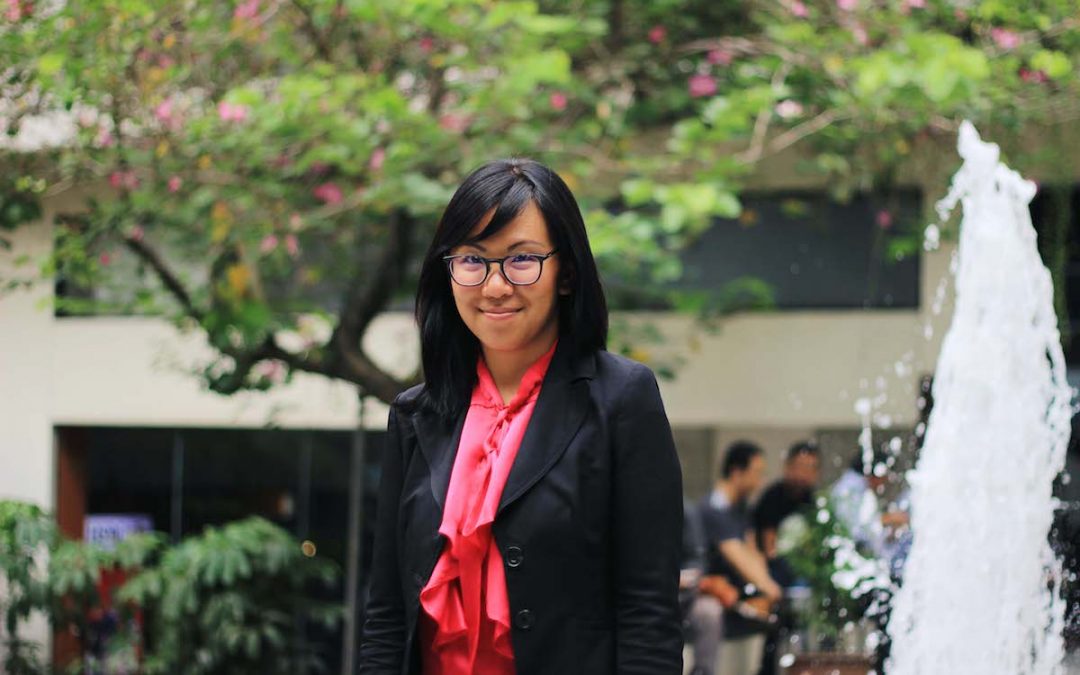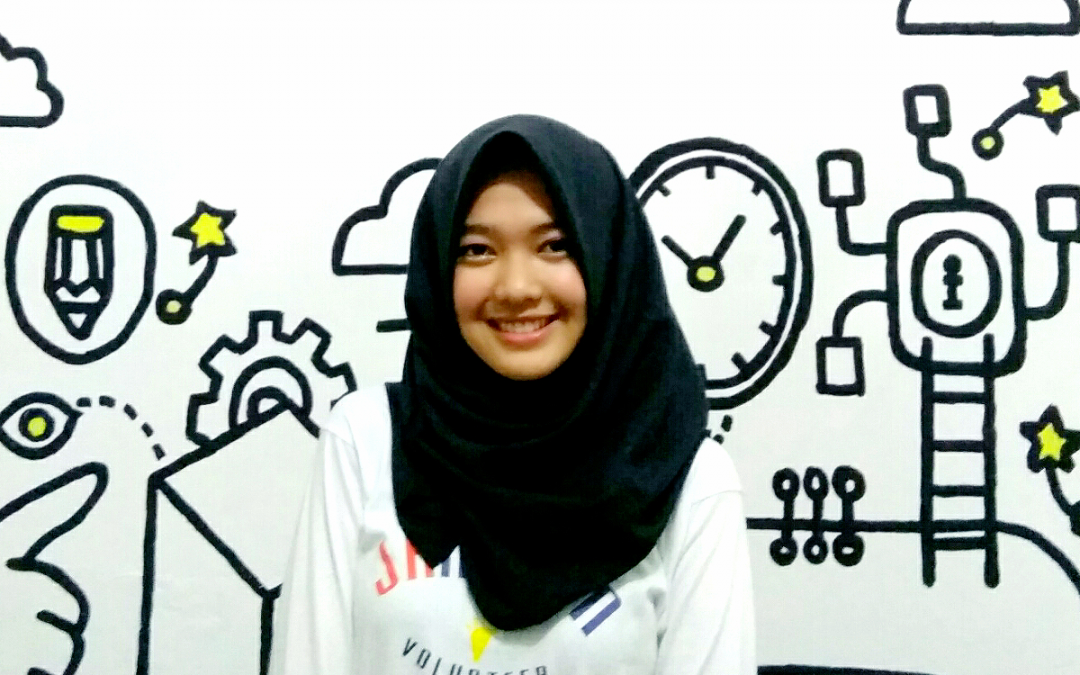Tell us a bit about yourself.
My name is Nina Moran and I am the co-founder of Aprilis Co. Within Aprilis Co,, we have GOGIRL! Media, a retail company called Picnic, and a B2B garment manufacturing business as well.
How do I begin? Well, I started in 2004. About a year before, my sister was a design student. For one of her projects, she was supposed to create a magazine. Although it was just a school project, we kind of got over-excited about it and it became a full business plan. Everything was done – every page, every article. Her aim was just to get an A and we kind of forgot about the project until our dad found our proposal and said, “Well actually, this is really really good.”
At the time, the scene wasn’t anything like now. Now we have angel investors, VCs, crowdfunding – all these ways to find money. Investors now are actually much more visible than when we got started. There was no way that young girls like us – I was 25 and my sisters were 22 and 17 respectively – were going to create a media company. It was insane. Nobody was ever going to believe us or fund us. I said that to my dad – because of those reasons, there is no way to start this business. At the time we needed US $150,000. We didn’t come from a wealthy family. It didn’t make any sense.
So I went to banks. The banks told us we were simply too young. There was only one type of loan we could actually apply for, called multiguna. But the interest rate was very high – 18%. Our dad said, “You’re gonna lose money before you make money, but 18% is insane. So I have some money and just use it, but if you mess up then there’s no way your sisters are going to go to college. This is it, this is what I’ve been working for for 20 years.” And we were like “There’s no way our dad has that kind of money.” Like he lives outside the city and he lives in a kost. Every time it rained it would flood up to his waist, and whenever I’m there I would help him move his furniture and whatever. “You have $100k and you don’t rent a house? WHY?” And my dad turned to me and said because I can take it, and this is my savings for you guys.
So the next 6 months we studied the market and distribution channels, got to know people. A few months after that, we launched in January 2005. After that there was a whirlwind of all kinds of things. We got cheated on for US $60,000 and all kinds of things like that, you know? But the thing is we made it through.
In the publishing market, how many others are giving young girls a voice?
Not many, I’m afraid. There used to be a lot – over 14 players. A lot of them have closed already. Now, there are only two: me and one other. We don’t really like that, actually. Lots of people say that’s good, the cake will be yours, the advertisement budget will be yours. But when the industry isn’t sexy, it isn’t fun. We compete in certain things, but we also collaborate on others. And when we don’t have people to collaborate with, it’s not cost efficient in certain ways. So I don’t like it when my competitors are closing down.
What do you think is GOGIRL!’s recipe to success?
Stories are what makes GOGIRL! alive. It’s how we talk to our audience; we evolved and most people don’t. I really hate when people say media is dying. I don’t think so. I think it’s because [media] hasn’t evolved in a long time. If you don’t evolve or innovate, it’s natural that you become irrelevant. For us, print is still giving us a lot of income. But someday if print isn’t there anymore, the stories behind it will still be there. So the question is, how do we make these stories heard and go to the right audience?
We have different strategies for different platforms. Print is something for you to play with – to write on, to cut, to paste, to share. That’s why we call it a “playzine.” We shifted October 2016. Since we did, we started to see more growth. So that’s the strategy for the print. It’s like a hobbyist thing. For our website, we craft short stories, but in the feminist point of view. It’s deep but short. Those are the kinds of things that get lots of pageviews. And the content on our YouTube channel is super fun, super light. Like how to create the perfect winged eyeliner, what’s inside your bag. Every channel has its own strategy. That’s our growth strategy.
What’s the Indonesian market’s appetite for feminism? And what’s GOGIRL!’s own take?
I think that Indonesia is very diverse. And because we are very diverse, there’s a market for everyone. There’s a market for both liberal feminism and conservative feminism. That’s the way it is in Indonesia. You just have to market it right. You can’t be everything. You can’t be accepted by every group and you have to be okay with that.
For us, feminism is respecting every female’s choice, whatever that is. But we want you to make that choice a conscious choice, whatever it is. So you’ve thought about it, this is my decision, this is what I want to do. We believe that’s power. And we might disagree with you. For example, we don’t believe in getting married at such a young age. There are those who disagree with us on our site. And that’s okay, if that’s what you think. But that’s our point of view. Why are you thinking about marriage now? Shouldn’t you be thinking about what you want, what you dream of, what you aspire to be? It’ll come to you when it comes. But why do you have to think about it now? But if that’s your choice, if you’ve thought it through – then it’s power. It’s your choice. And we like that you have a choice. So that’s what we believe in and that’s how we write the angles on our publications.
How empowered are Indonesian women today in terms of pursuing their own businesses, their own goals, their own choices?
There are still lots of challenges for women all over the world. But I think Indonesia has a slight advantage. We have Kartini. And we have a proverb: “Heaven is underneath your mother’s feet.” Meaning that women are quite respected, quite looked up to in a way. Because we have female heroes as well, we are more progressive in ways versus places like the United States. But having said that, there are so many ways we can improve – for instance, the disparities between women in rural areas or even outside of Java versus those in Jakarta. These women still have lots of challenges compared to us here in Jakarta or in other big cities in Java. There are a lot of cultural barriers, as well as barriers to opportunity due to geographical access. We don’t really see many startups in Kalimantan for instance. Then again, the population there is also not as high as that of Java’s. But I think it’s more due to cultural and geographical access. How many venture capital firms are there actually in Sulawesi or Kalimantan? Technically, entrepreneurs could always access via call because it’s the internet era. But if you don’t live in Jakarta, it’s like going back and forth, back and forth for potential investors. It’s very costly.
Can you elaborate on the term, “cultural barriers?” What exactly does that mean for our non-Indonesian readers?
Well, it’s very similar across many cultures. The expectation that females still belong in the kitchen kind of thing, or that in some cultures, having a son is more desirable than having a daughter. Things like that. Oh, and the belief that if we [females] are too smart, too dominant, too ambitious – most women think that it’ll be much harder to find a spouse, things like that. There are even some subcultures in Indonesia where the father is very dominant and doesn’t allow their daughters to pursue higher education. In a way, it’s almost like we’re second-class citizens.
How can we start combatting those stereotypes and barriers to improve access to opportunities for women?
Fintech helps a lot. I really think so. I’m so happy that there are so many fintech companies that are running now. With fintech, you can help a lot of people in rural areas or people outside of Java. It’s super easy, people can simply apply online [to gain access to funds]. I think that’s super awesome.
I also see that women themselves are the biggest barriers to themselves. A lot of self doubt, over thinking. Lots of things. Yes, there are cultural barriers, religious barriers. But I see mostly it’s ourselves that are barricading ourselves to our futures. We forgot that we have to invest in our own self-growth. Go to seminars. Read books. Meet new people. Ask questions. Indonesian people hate asking questions. Those kinds of things, we have to unlearn from the past.
Have you faced any challenges unique to being a woman in an industry where you’re positioning yourself in a feminist light?
Although the media industry seems to be female-centric, the number of female owners is very small. In the entire media scene right now there are only two female founders. Femina Group and us. Everything else is founded by men. The owners, the founders are all men. We are still very much a minority in this industry. I think the female founders are minorities in most industries, actually.
I do have one memorable anecdote. When I was putting together Resonation (a women’s empowerment conference), I was trying to find sponsors. One prospective sponsor saw our proposal and invited us to their office to have a meeting. At the office, the CEO said to me, “Oh I know about this, this is that women’s empowerment dumb s***.” I was like, “Did I hear that out loud? Was that in my head?” And I was just looking left and right to my staff, and even the staff was horrified. It means that I didn’t actually hear that in my head. “I beg your pardon?” I said. He replied, “No, no, I mean why would I want to sponsor this?”
I was just opening my laptop and beginning my presentation. So I just closed it again and said, “Because of men like you, sir. That’s why I care about this women empowerment dumb s***,” and then I just walked out. Like, what just happened, this is 2016!
And how do you get past all that negativity? How do you brush that off despite the doubt, negativity, and resistance you face?
I guess I kind of recruited my support group in a way. Before I started creating Resonation, most of my network was male. I didn’t actually know a lot of female entrepreneurs or anyone like that. I was like, “Ugh, this is too much testosterone, I need females.” So I followed a lot of people on Instagram and invited them to go on a trip with me. And I mean we all knew each other by reputation but I had this idea of taking a trip together and we actually did. It was 14 of us, all alpha females. All of us had the exact same fear; we knew we are alpha so we were scared we’d all bite each others’ heads off. But because of the commonality and similar struggles we face, we actually got along really, really well. We actually became each others support system. We ask each other for advice, we would go to each other’s events. I think before I met these women, it was hard. All my male friends are awesome but they don’t understand the struggle of being female. I’m really grateful to have these 14 females that will just tell you if you’re doing a bad job or a project and they’ll tell you in your face. Like, “Hey I don’t think that’s gonna work,” and that’s so refreshing. You know there are people on your side.
What advice do you have for people with similar aspirations?
Do your due diligence, but stop overthinking. I think it’s a plague among the 20 year olds. Seriously. What is scaring you so much? Yes, there are risks, but be prepared and then jump. Don’t jump just to jump. Of course you’ll drown. But do your research. And then start. Because once you start, there will be so many lessons you will have to go through. And you’ll learn from that and you’ll get better from that. Stop overthinking already. Enough. It’s plaguing all the youth. Even if you are prepared, there will be so many things you’ll never anticipate. You’ll know what to do when you are in the situation. And if you don’t know what to do, then you’ll find out. Learn. Ask. Do whatever. Because once you’re there, you’ll have no choice but to get better or find solutions. That’s it.
